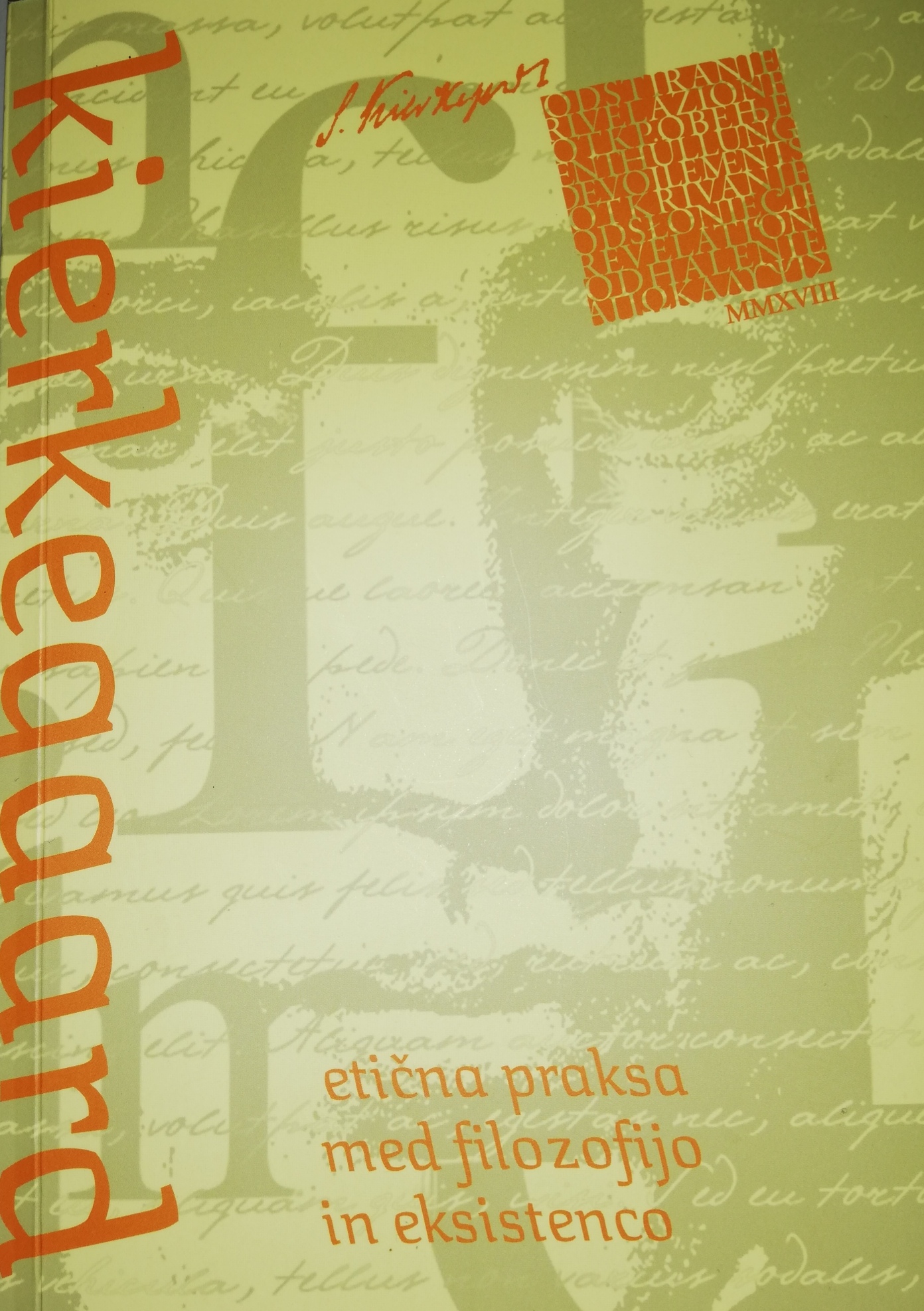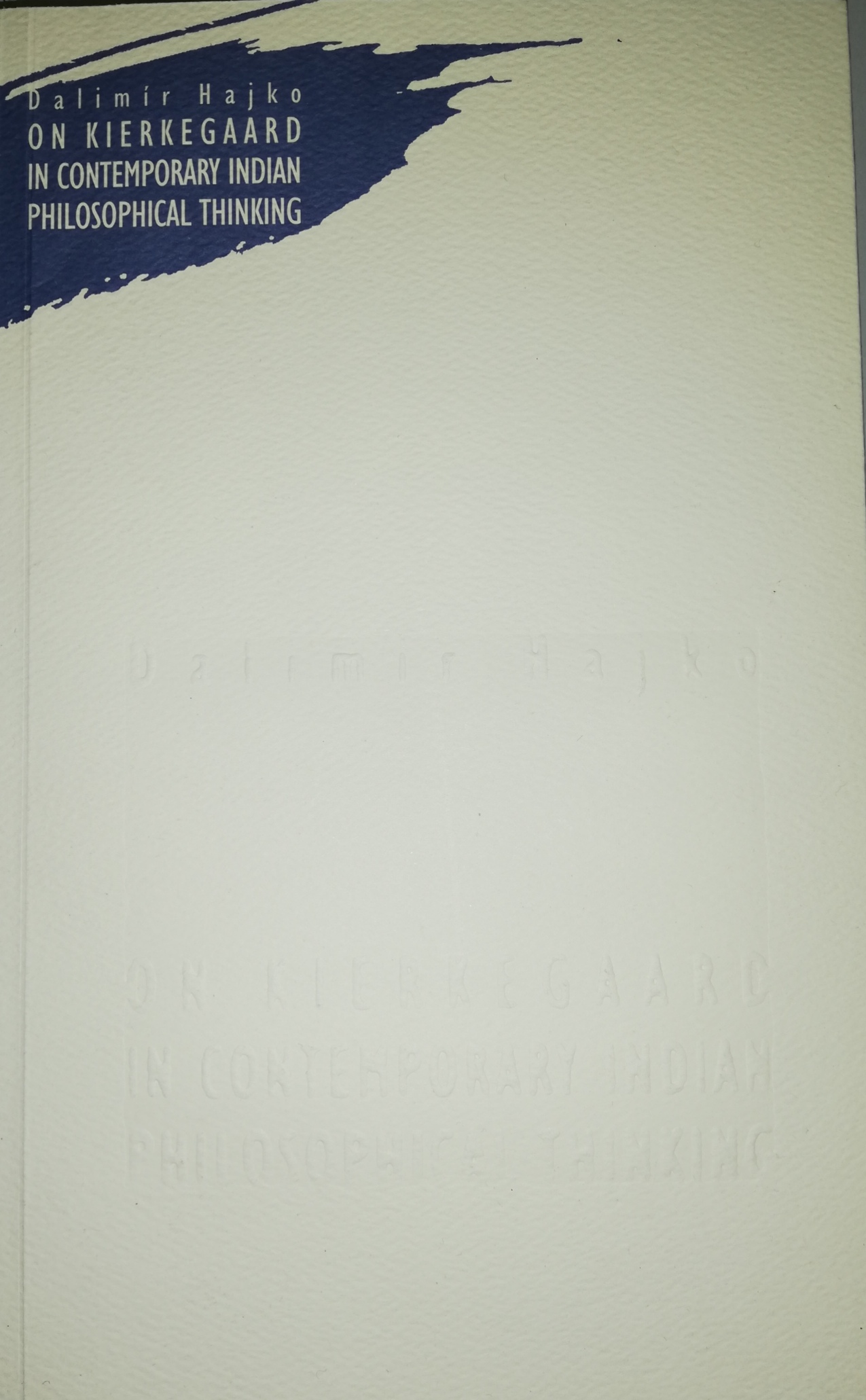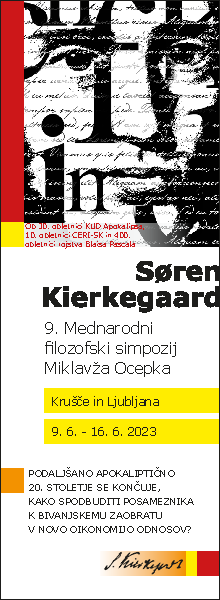About the book
The book offers a three-step itinerary into Kierkegaard’s thinking. It opens with an investigation of his biblical background, providing textual evidence that categories such as “repetition,” “stages,” “life’s way,” and “leap” find their true meaning in a scriptural framework. Then it focuses on the superhuman revolutionary conception of love discussed in Works of Love (1847), considering the relation to the unchangeable evermoving God as the basic condition for self-upbringing, and becoming neighbour to oneself as the fundamental task in Christian life. Eventually, it outlines Kierkegaard’s attack against both religious conformism and rational mysticism’s claim to overcome Christianity. It concludes with two addenda respectively devoted to exploring analogies between Kierkegaard’s communicative strategy and the film Ordet (1954) by C. Th. Dreyer, and to considering Kierkegaard’s religiousness in the light of the modern/archaic dichotomy stressed by Mircea Eliade.
Žarko Paić: The Spheres of Existence, Three Studies on Kierkegaard
Editorial board: prof. dr. Jasna Koteska (Macedonia), prof. dr. Darko Štrajn (Slovenia)
EXCERPT FROM THE INTRUDUCTION BY ŽARKO PAIĆ
If we would like to undertake a »deep scanning« of the history of Western metaphysics through a brief history of fundamental feelings without which thought cannot have a language nor man exist without a body, its credibility might have been expressed through four essential feelings. Such thought can be no reduction to philosophy as an onto-theology that created concepts within the essential framework of thinking concerning the Being (esse) and God (Deus). But philosophy presupposes an event of thought. This is a necessary but not sufficient reason for the beginning of metaphysics. Something else might be needed as a condition of the possibility of one saying what is at the core of identity and distinction of this Western matrix of historical development. Awakening cannot arise without the apriori openness of the Being. Everything comes with wonder as an insight into what it is (Being). The Greeks found an expression for this ─ thaumasein (θαυμάζειν). The new era of science and technology establishes, then, the kingdom of the subject. Dubitatio from Descartes’ Meditations on First Philosophy opens the way of self-awareness. The creation of a subject also marks a turn of thought. With the emergence of the world as an object of scientific knowledge, therein occurs the essence of technology as an enframing (Gestell).
Editors of Monograph Series: Prof. Dr. Jasna Koteska (Macedonia), Prof. Dr. Darko Štrajn (Slovenia)
Zanima nas torej tista etična praksa, ki se dogaja vmes, med filozofijo in eksistenco. Vse bolj se zdi, da živimo v zapuščenem svetu post-totalitarne dobe, ki jo je zakoličila nova, nevidna in strašljiva miselnost, ki jo odlikuje ne le sleherna odsotnost ideje, temveč surovo in nasilno prodiranje v samo jedro zgodovine. Načelni problem sodobnosti, kot ga označi Kierkegaard v svoji Literarni kritiki, ni le brezstrastnost dobe, kjer se množični človek utaplja v ravnodušju in lastni plehkosti, kjer je pozabil na lastno subjektiviteto kot resnico eksistence, temveč je vse skupaj še huje. V množični poplavi dogodkov se zdi, da se prav nič več ne dogaja.
*
Odsotnost ukvarjanja s seboj terja subjektiviteto kot eksistencialnega misleca/mislico lastnega položaja in resnice, ki se razgrinja vmes med racionalnostjo osebka in čistostjo srca nesprenevedave duše. To, na kar vsi pristajamo, je diktatura politične birokracije določenega aparata, ki kontrolira, nadzoruje ter tako upravlja izravnavano družbo. Udobje potrošniške družbe prinaša razpadanje družbenosti, kar sproža – v tej skrajni dobi nihilizma – le resentiment dolgočasja in zavisti. Toda le dejanja štejejo! Človek mora ponovno najti oz. iznajti to koncentrično točko.
*
Ko se je na prelomu 19. in 20. stoletja oblikovala mreža novih gospodarskih združevanj ponižanih in razžaljenih, je bila nova politična etika vezana na dejanja ljubezni. Prav tako to tudi velja za mladinsko duhovno-prenovitveno gibanje (revija Križ na gori), ki je to izročilo povezovanja v civilni družbi preneslo v polje razumniškega delovanja. Vpraševanje med filozofijo in eksistenco tako sproža tudi posebno dialektično silovitost, ki v napetosti navdušenja (patosa) sproža prvi zagon revolucije, ki bi še vedno lahko pomenil nenasilni bivanjski zaobrat v pluralno družbo solidarnosti in izmenjave idej, vendar če vmes ne pride do kakovostne spremembe odnosov v tisto pravičnost, ki jo Kierkegaard imenuje »ljubezen do bližnjega«, potem pride znova do izraza ne-človeško, demonsko. Svet lahko namreč spremenimo le s politiko ljubezni in medsebojne pomiritve med živečimi, kjer tudi oporečništvo posameznika terja »ponižnost« in »hvaležnost«. Toda brez izvira oikosa ni mogoče snovanje, ki bi ustvarilo okolje, kjer bi izkušnje etične prakse spodbudile prakse odgovornega državljanstva.
Iz nagovora dr. Primoža Reparja
Hajko focuses primarily on the philosophical reception of European existentialism (French and German) in India (in the second half of the 20th century), which is certainly not a uniform and the unambiguous one. Modern Indian philosophersfind themselves advocates of “European existentialism” (if used as a template mark) that found the “existential proximity” of two so much different cultures. We will find in the Hajko’s collection of Indian authors, which we briefly present, criticism, as an expression of the “decadent culture”. Anyway, “existentialism” has drown and is drawing a strong response in India. Nothing, death, anxiety,solitude, concern, freedom, etc. there are topics that are common to us. Affects that do not matter about where we live. If the Indian reception is far from uniform and unambiguous, however, as we get a sense of reading Hajko, this reception can have at least one consensus: S. Kierkegaard is the one who got the most response among “European existentialists” (if we include at least Heidegger, Sartre, Camus and Jaspers, Marcel and Berdyaev). And perhaps we do not have to be too guessing why, if we know that Kierkegaard has “presented himself to us” as someone “out of the way place”. Therefore, the cultural “out of the way place” will be so great and magnificent; this “does not hurt or benefit us” in the subjectivity of the philosophy of subjectivity. And perhaps this is its eternal attraction appealing to so many single individuals all over the world.
Dejan Aubreht




